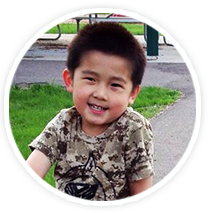Services are free!
Regardless of:
Infant and Toddler Intervention describes a set of services that supports a child’s learning and growth. It is sometimes called “early intervention” because the services are delivered early in life, before age three. Another name used for these services is “Part C,” because that is the how the federal law defines the services. These services help children with developmental delays and disabilities achieve the best outcomes later in life.
Children grow and develop rapidly across the four main areas of development in their first three years. These areas are motor (physical), communication and language, social and emotional, and cognitive. Professionals from the local school districts provide Infant and Toddler Intervention services during this critical time of development.
Infant and Toddler Intervention services support a child’s healthy growth. In many cases, this intervention changes a child’s developmental path. Some children reach the same developmental levels as others their age due to early intervention.
Your child may need Infant and Toddler Intervention services if he/she has a developmental delay or a diagnosed condition that may result in delay. If you have a concern about your child’s development, talk to your child’s healthcare provider and refer your child through Help Me Grow for a free screening or evaluation.
Some common reasons that parents, caregivers and professionals refer a child through Help Me Grow include:

If you have concerns about a child's development and think a child might need extra help to learn and grow, don't hesitate to refer a child.
The family will be contacted by the local school district to arrange for a screening or evaluation to determine if their child is eligible for Infant and Toddler Intervention or Preschool Special Education services in Minnesota.
Services are free!
Regardless of:
